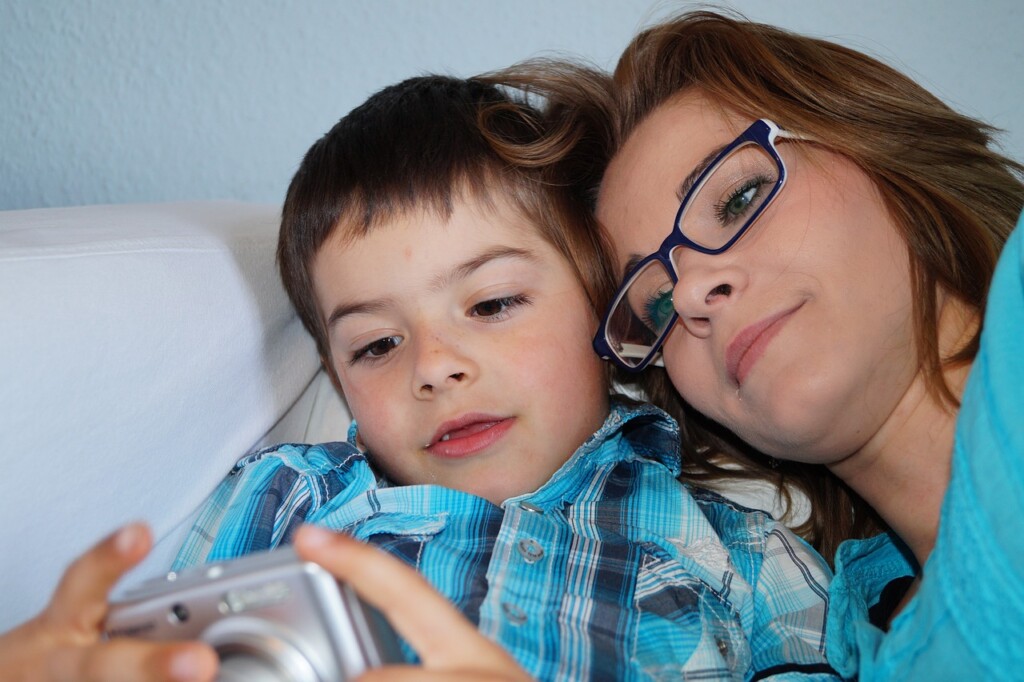5 Ways Things Have Changed Since Parents Were Kids

Parents may think they know what it’s like to be in elementary, middle, or high school since they’ve been through it already. But is childhood really the same as it was when we were young? The answer is yes—and no.
“Kids still rely on their parents for love and comfort,” says Dr. Michele Borba, an educational psychologist and bestselling author of Thrivers: The Surprising Reason Why Some Kids Struggle and Some Kids Strive. “They still need their parents to be firm and fair.”
But parents need to realize that things are different than when they were kids. “Current science tells us what a big role culture plays in a child’s development and today’s culture is different than the one parents grew up in,” Borba says. “Today’s kids deal with issues and situations their parents never experienced.”
- The World Feels More Dangerous
In January 1986, the spaceship Challenger exploded as children across the country watched in real-time from their classrooms. Today, moments like these are much more frequent. From school shootings to plane crashes, childhood has become more frightening. “This generation is more fearful, and with good reason,” Borba explains. “Kids can see graphic images on their personal devices in real time. They know about the wildfires in California and other natural disasters, furthering their fears about climate change.
When we were kids, we had fire drills. Today, kids have active shooter drills. “Parents can no longer shield even young children from the scary things happening in the world,” Borba says.
- Expectations are Higher
Homework and exams have always been a part of childhood, but today, the pressure to succeed is at an all-time high. “The expectations and the demands on kids are much higher than when we were kids,” Borba says. “The increased emphasis on test scores and GPA makes it feel like the high stakes. The result is that they are stressed out, anxious and sleep deprived.”
And it’s not just the schoolwork—it’s extracurriculars, too. “Parents are investing so much time and money in their kids from hiring tutors and spending weekends at sports tournaments,” Borba says. “Kids fear letting their parents down.”
- Parental Are Always Watching
A generation ago, when kids took a test at school, parents wouldn’t find out the results unless they asked the child directly or when the quarterly report card came home. Today, parents can check scores online and text their children almost immediately about the results. “Kids can’t concentrate,” Borba explains. “Little independence means they have little autonomy from their parents. Their parents constantly monitor everything from their whereabouts (on apps like Life360 and Find My iPhone) to their test scores. What’s more, the majority of kids say they want parents to monitor them.”
While most parents have good intentions, hyper-vigilante parenting is backfiring. “The monitoring of grades makes kids believe that their grades define them,” Borba says. “And the helicopter parenting style robs kids of their independence and the opportunity to build up their confidence and resilience. They need a chance to succeed and fail on their own without parents always rescuing them.”
- Kids Have Too Little Free Time
Kids used to get outside and play and return home for dinner. Today, most free time has been replaced by structured activities. There are travel teams, private lessons, and hours of practice for everything from drama classes to sports.
“We have given kids no time to play in the sandbox anymore,” Borba says. “The mud and dirt have been removed from childhood. Those carefree moments help kids decompress and when they are playing together, they are learning social skills. But today, when kids do have free time, they spend it on their screens instead of imaginative play or being creative. It’s a huge loss.”
- Parents Have More Anxiety
“Most parents who track their kid’s whereabouts aren’t doing it to be annoying,” Borba says. “Parents themselves are stressed out. They are worried about their kid’s safety, the state of the world, family finances, health concerns—we just lived through a pandemic.”
While these concerns are valid, the reality is anxious parents create anxious kids. “Kids feed off their parents, so seeing that their parents are stressed out is stressing them out,” Borba says. It used to be that grown-ups could disagree and still be cordial with one another. Today, the world is more polarized, and adults aren’t modeling good behavior making it difficult for kids.”
So how can parents help their kids to better navigate childhood? “It’s about finding balance,” Borba says. “Yes, there are bad things going in the world going on, but there are also wonderful things. Make a point of discussing the good stuff. Take a breath and be present.”
Borba reminds parents they do have some power over their kids’ childhoods. “Parents can’t cancel the culture, but they can change things in their own home,” Borba says. “Kids don’t have to be over-scheduled. They can have more time for free play and exploration if parents allow it. They can insist their kids unplug more. And parents can pull back on the monitoring and give their child a chance to figure things out on their own.”
RANDI MAZZELLA is a freelance writer specializing in parenting, teen issues, mental health, and wellness. She is a wife and mother of three children. To read more of her work, visit www.randimazella.com.









